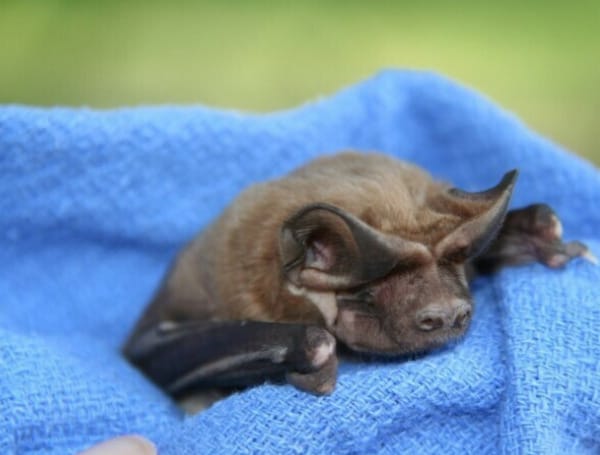The Florida Fish and Wildlife Conservation Commission (FWC) is reminding the public that Florida’s bat maternity season begins on April 16, and that April 15 is the last day to legally exclude bats from buildings without a permit.
Florida’s bat maternity season, during which most of the state’s bats give birth and raise their young, runs from April 16 to August 14 each year. During this period, it is illegal to prevent bats from returning to their roosts. This restriction is in place to protect flightless bat pups, which could become trapped inside structures.
READ: FWC Announces Winners Of The Florida State Fish Art Contest
The FWC emphasizes that the only legal and effective method for removing roosting bats from buildings outside of maternity season is through the use of exclusion devices. These devices allow bats to safely exit a structure but prevent them from re-entering. The legal period for using exclusion devices is from August 15 to April 15. A permit is required to use exclusion devices during the maternity season.
Bat exclusion guidelines have been established to ensure the safe and effective removal of bats from buildings, minimizing harm to both bats and people. The exclusion process involves identifying all potential bat entry and exit points in a building, installing exclusion devices on key exit points, leaving the devices in place for a minimum of four nights, and conducting the exclusion when the overnight temperature is forecast to be 50°F or above.
READ: “Reel Terror”: Florida Woman’s Pellet Gun Tirade Turns Fishing Trip Into Nightmare
The FWC highlights the significant ecological and economic benefits of bats in Florida. Florida’s bat species are insectivores, with a single bat consuming hundreds of insects nightly, including mosquitoes and agricultural pests. Bats worldwide play crucial roles in insect pest control, pollination, seed dispersal, and their guano can be used as a valuable fertilizer.
Florida is home to several native bat populations, including endangered species like the Florida bonneted bat. The FWC encourages residents and visitors to support bat conservation through the following actions:
- Preserve natural roost sites, such as trees with cavities or peeling bark.
- Leave dead fronds on palm trees to provide roosting spots.
- Install a bat house on your property.
- Plant native plants to attract native pollinators and benefit bats.
- Report unusual bat behavior and sick or dead bats to MyFWC.com/BatMortality.
- Volunteer with the Florida Bat Force!
Please make a small donation to the Tampa Free Press to help sustain independent journalism. Your contribution enables us to continue delivering high-quality, local, and national news coverage.
Connect with us: Follow the Tampa Free Press on Facebook and Twitter for breaking news and updates.
Sign up: Subscribe to our free newsletter for a curated selection of top stories delivered straight to your inbox.
